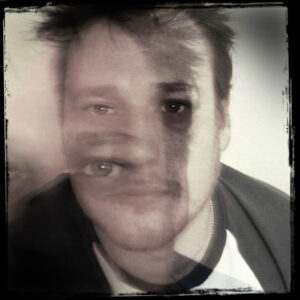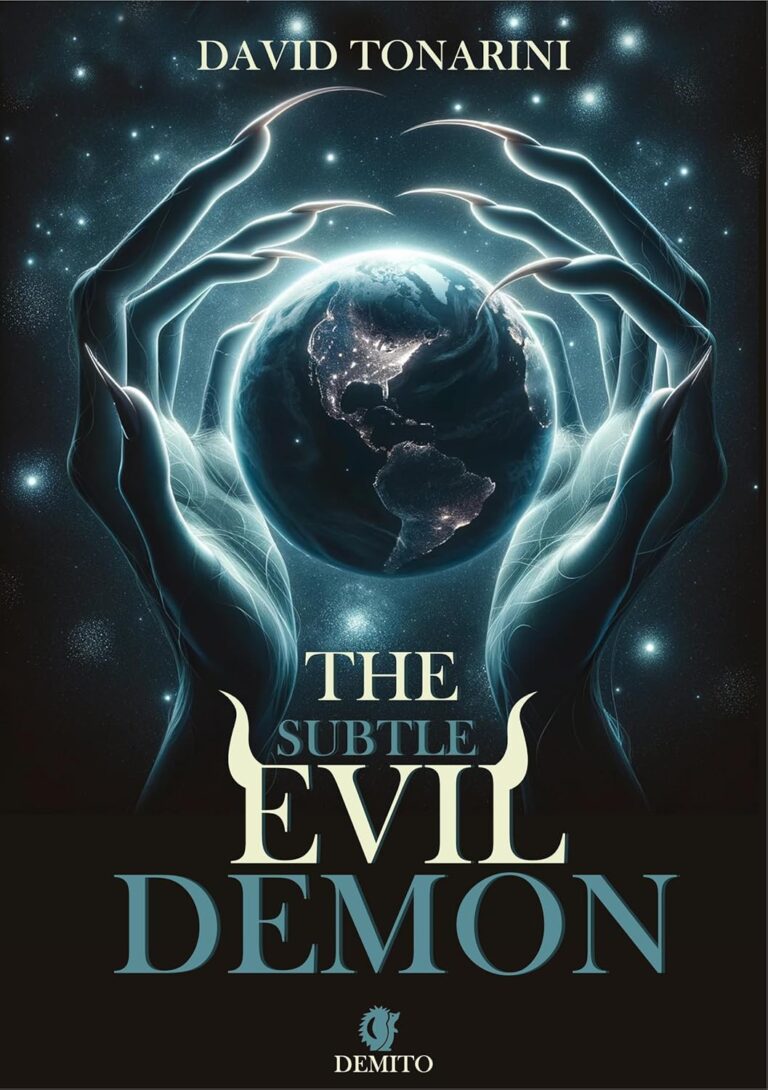In some of the posts in these pages I refer to a “Subtle Evil Demon”. And you may rightfully be confused about what in the world that is! The reason is that some of the posts are free excerpts from my book named, you gess it, The (Subtle) Evil Demon
Because of that, the readers where intended to have read already the earlier chapters, in order to know what I am referring to. Since you, instead, may stumble upon these pages from any posts, including those written as later chapter of the book, you may be confused about what I am referring to. It is very straightforward, actually: what I call “the Subtle Demon” is simply our brain. With this name, I emphasise our brain’s quality of distorting the objective sensory data it receives through our senses. Because of that, it turns out that ultimately most of what we perceive to be “reality” is actually an illusion.
This is all the “background” you need to know to understand what am I talking about in the posts referring to the Subtle Demon. If you want to know more about this term, though, here you have the excerpt of the chapter of the book introducing this terminology.
The evil demon
«Today, more than ever, the duty of men of culture is to disseminate doubts, not to collect certainties.»
Norberto Bobbio
René Descartes is thought to be one of the founders of modern philosophy and mathematics. One of his most important contributions was the search for fundamental principles, those things that we can know to be truth with absolute certainty. This task brought him to the systematic introduction of doubt: to see any idea as being possibly false.
Sensible knowledge was the first thing to be addressed by this doubt. That senses can sometimes be deceitful is quite obvious – especially in today’s world, where anyone has surely witnessed illusions or magical tricks of some sort. But Descartes went further than that, by realizing that the sensory perception as a whole can be illusory. It is known, for example, that during a dream we are living something that is not real, and yet we don’t realize it until we wake up (no matter how unrealistic the dream). Therefore, how can we know that all we can learn through sensory perception isn’t just as illusory? Using a different analogy, coming from Chinese philosophy, how can I know that I won’t wake up tomorrow and realize that I actually am a butterfly who merely dreamt all I though was my life until now?
The systematic doubt, however, doesn’t spare even those «truths» acquired through reason, such as logic or mathematical knowledge. Although nothing could seem more certain and clear, it could still be possible that our mind itself is deceived into believing so. Descartes hypothesized the existence of an evil demon (sometimes referred to as the evil genius), a personification who is «as clever and deceitful as he is powerful, who has directed his entire effort to misleading me.» The evil demon presents to your senses a complete illusion of an external world, including other minds, where there is no such external world in existence. The evil genius also presents to your senses a complete illusion of your own body, including all bodily sensations, when such body isn’t actually real. Eventually, such entity may even be capable of altering mathematics and the fundamentals of logic, therefore making any possible knowledge that you can acquire anything but an illusion.
Pointless philosophy… or something more?
«All men know the use of the useful, but nobody knows the use of the useless.»
Chuang Zu
My point here is not to discuss Descartes’ original formulations of these concepts. Historically there is some controversies between Cartesian scholars about whether or not the evil demon is omnipotent (thus being actually capable of altering the fundamentals of logic). Some Cartesian scholars opined so, and some of his contemporaries even accused him of blasphemy for «holding God as a deceiver». It is noted, however, that the evil demon is never declared by Descartes to be omnipotent, merely to be not less powerful than he is necessarily deceitful, and thus not explicitly an equivalent to an omnipotent God. Besides, Descartes elaborated a complex metaphysics over this concepts, starting from the alleged certainty of the famous «Cogito, ergo sum» (I think, therefore I am) to create a system of knowledge where the pineal gland (a small gland which many cultures has seen as holding special or mystical properties, for its peculiar aspect and the location near the centre of the brain) had the crucial role to connect the immaterial «mental substance» (res cogitans, «thinking matter») to the material and sensible reality (res extensa, «extended matter», as in having a physical extension). Ultimately, though, as his argument went on, Descartes used the idea of God itself as the foundation of knowledge, the reasoning being more or less that I must trust what I know because if all was illusory, God would have been a deceiver, which «proves» otherwise. So, in the end, he was hardly that radical and blaspheme. His somehow disappointing conclusion (from the perspective of an intellectual depth, I am not meaning an attack on religion) is, of course, a much shared one in the history of western thought.
Beyond all Descartes’ conclusions, which today hold merely historical interest, the dilemma he posed is still crucial to any theory of knowledge. Since, by the very nature of the problem, we can tackle it on metaphysical ground alone, beyond physical reality and anything we can actually verify, we can’t find a universal solution beside subjective, contestable opinions. In other words: we currently don’t have any plausible answer, and probably we’ll never have one. Despite this being a formidable blow to any hope of accessing a universal Truth, the practical influence of such hypothesis is virtually non-existent.
Beyond abstract philosophical speculations, indeed, we simply assume the evil demon isn’t there. It’s not a conscious decision we’ve reached after solid reasoning or because of other irrefutable evidence, merely the practical necessity to deal with the sensible reality we are forced to live in on everyday basis. Even if I happened to convince myself that the evil demon hypothesis is true (not that I ever met anyone who did), I still couldn’t free myself from its illusions, nor I could figure out what’s truly «out there». More importantly, even if I «knew» the world I perceive is nothing more than a non-existent product of my own deceived imagination, I would still wake up tomorrow living with this same «world».
A second demon
«The Devil is in the detail.»
The reason I mentioned Descartes’ concept of the evil demon is that we could imagine a second possibility. There could be a similar entity that isn’t so powerful to create a whole illusory perception of the world and of the self from scratch, but that is capable of altering our subjective perception of the world from within. In other words: imagine there is a world out there that we actually live in, and that our senses and reason can indeed provide us insight about it, but parts of this perception are illusions. Clearly, this more «subtle» evil demon wouldn’t be nearly as powerful and pernicious as the one imagined by Descartes. Contrary to the original one, however, this one could have a practical influence on our everyday life. In fact, this «weaker» version of the evil demon hypothesis could be much more dangerous than the original «strong» version. If the world out there is in fact real, but some of my perceptions about it are misled, the possibility that I could be regularly tricked into believing unreal things becomes concrete. In such case, to know exactly when my perception of this external world is accurate and when it is not will become a crucial dilemma, and knowing how to figure out the answer will be fundamental to avoid taking practical decisions in my life based on the illusory components of my perception, potentially with catastrophic consequences.
This book is about proving how this hypothesis of a (Subtle) Evil Demon is founded. As mentioned, it is acceptable and justifiable to simply assume that the external world is real, given its inherent consistence. I cannot be sure that it does actually exists or that «true» reality isn’t something entirely different altogether, but practically speaking the same «me» wakes up every day in the very same world. Can I be sure that I will still be «me» and that I will wake up in this same world tomorrow? Well, no. Yet, I’m not that preoccupied of this uncertainty. I just keep living as if it was certain, and this has been consistently working till now – which also mean that every single day in my life till now it would have been dysfunctional to make different assumptions. If tomorrow I’ll wake up realizing I’m actually a butterfly, well, I’ll probably have much to think over about. But, until then, it will just practically be safe and reasonable to assume otherwise. In this sense, the external world I perceive has a remarkable consistency which I can strongly rely on, and we could say that it is what makes it «real». But for now simply keep in mind that in the rest of this series when I’ll talk about «reality» I will be referring to this property of the external world of being consistent.

That said, it would seem to be just as natural to assume that there is a reliable consistence between this external reality (its objective state) and my perception of it (the subjective representation of this reality). Such a correspondence has generally been assumed in all practical settings. This turns out, however, to not be as assumption we are so justified to take for granted. Of course, some differences between perceived and objective reality are obvious and all but surprising. For example a certain image (a photo, or a memory) can have an emotional component that by definition is not present in the reality per se, but rather is a product of our personal interactions with it. Hence, it’s obvious that, to some extent, our mind is capable of adding (or even altering or removing) certain components to objective reality. That’s a direct consequences of our nature as conscious creatures possessing a «soul», if you wish, rather that mere machines which intent is to «capture» reality as it is.
Intuition suggests, however, that beyond the very well know subjective components we might implement, the perception of what the objective reality by itself looks like should be somewhat reliable. In other words, we can disagree, for example, that a certain image is beautiful. But, it would seem, we should all agree that there is, say, a black dog in the picture. If someone else would argue that the photo actually depicts a horse instead of a dog, or that the dog is white instead of black, we would find that very strange *.
As we’re going to realize, however, there is a much larger discrepancy between our perception and what we could call objective reality. So, let’s finally reveal the identity of our Subtle Evil Demon, and let’s begin to discuss its deceitful cons: we are talking about our very own brain! This turns out to be anything but a passive observer that reports reality as it is, but rather an extremely active component that is capable to change our memories, manipulates our thoughts, and isn’t ashamed at all to often convince us to believe clearly false things, even when it comes to fundamental matters (such as why the sky is blue).
***
This post is a free excerpt from my book.
Click here to read more free excerpts from this book, or see the book’s main page “The (Subtle) Evil Demon“.
You can purchase “The (Subtle) Evil Demon” on Amazon, available in Kindle edition, Paperback and Hardcover!









+ There are no comments
Add yours